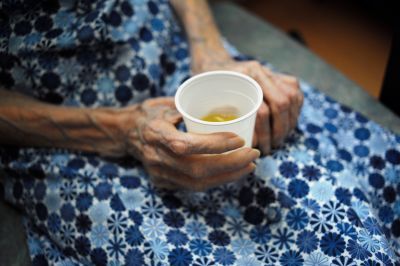Women deprived of health care at key moments of life: WHO

Your support helps us to tell the story
From reproductive rights to climate change to Big Tech, The Independent is on the ground when the story is developing. Whether it's investigating the financials of Elon Musk's pro-Trump PAC or producing our latest documentary, 'The A Word', which shines a light on the American women fighting for reproductive rights, we know how important it is to parse out the facts from the messaging.
At such a critical moment in US history, we need reporters on the ground. Your donation allows us to keep sending journalists to speak to both sides of the story.
The Independent is trusted by Americans across the entire political spectrum. And unlike many other quality news outlets, we choose not to lock Americans out of our reporting and analysis with paywalls. We believe quality journalism should be available to everyone, paid for by those who can afford it.
Your support makes all the difference.Women are often deprived of health care in the crucial years of puberty and old age due to social inequalities with men, the World Health Organisation said Monday.
"It's time to pay girls and women back, to make sure that they get the care and support they need to enjoy a fundamental human right at every moment of their lives, that is their right to health," said WHO Director General Margaret Chan.
A WHO report, "Women and Health," underlined that women were particularly vulnerable to a lack of adequate care in old age - when they often outlive men - and in their adolescence.
Chan underlined that men exercise political, social and economic control in many societies, affecting health services.
"These unequal power relations translate into unequal access to health care and unequal control over health resources," she added in a statement.
"We will not see significant progress as long as women are regarded as second-class citizens in so many parts of the world," Chan said.
The WHO report underlined that health care, especially in low and middle income countries, "may be biased against the old and is rarely geared to the particular needs of older women."
But the challenges of care for the elderly are equally acute in rich societies with low levels of fertility and growing proportions of older people in the population, the report argued.
"Perhaps one of the greatest challenges faced by the individual woman as she ages and by the society which surrounds her, is the disintegration of the self that occurs with dementia," the report underlined.
The prevalence of dementia appears to double about every five years after the age of 65, the WHO found, when women in many societies enjoy an extended life expectancy compared to men.
Some 58 percent of the population above the age of 70 are women, the report.
Chronic conditions, such as cardiovascular and obstructive lung diseases, account for 45 percent of deaths in women over 60, and need to be tackled earlier in life by establishing healthier lifestyles, the WHO said.
The world's 600 million adolescent girls, meanwhile, face environments "that are too often neither safe nor supportive" at a time of "huge physical, social and emotional changes," it added.
Girls' experiences of puberty can make a difference between ill and good health later in life, the report argued.
Yet, many of them face "constraints and marginalisation as a result of poverty, harmful social and cultural traditions, humanitarian crises and geographical isolation," hampering their access to health care and support when they most need it.
apo-pac/tw
Join our commenting forum
Join thought-provoking conversations, follow other Independent readers and see their replies
Comments